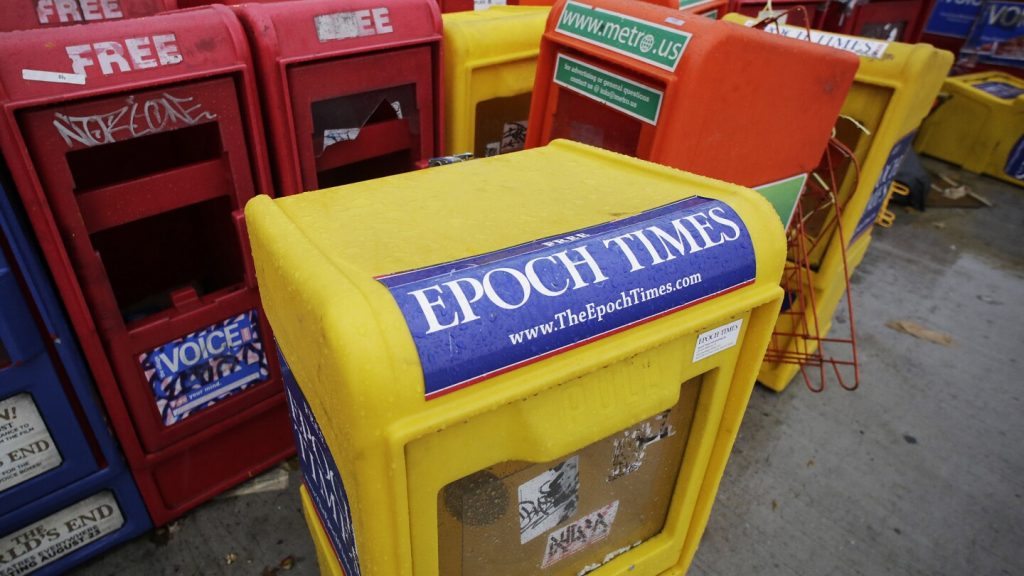The Epoch Times, a media outlet founded in 2000, has recently come under scrutiny following the arrest of its chief financial officer, Weidong “Bill” Guan, on charges of money laundering. The company, known for its support of former President Trump and spread of conspiracy theories, has evolved from a newspaper to a global news organization available in 23 languages. Despite its roots in Falun Gong, a spiritual practice persecuted by the Chinese government, The Epoch Times claims to provide unbiased information to its audience.
During the Trump administration, The Epoch Times shifted its focus to support Trump and his causes, embracing conspiracy theories and misinformation, particularly in relation to COVID. The outlet aggressively promoted its content on social media platforms, leading to a ban on pro-Trump advertisements by Facebook in 2019. The indictment against Guan suggests that the company’s revenue growth may have been fueled by a criminal scheme, raising questions about the involvement of other individuals within the organization.
While Guan is the only one charged in the case, the indictment suggests that others within The Epoch Times may have been aware of the alleged money laundering scheme. The future of the company remains uncertain, especially in light of changing social media dynamics and restrictions on political content. Despite its efforts to align itself with conservative causes, The Epoch Times has not had a significant impact within right-wing media circles, according to media analysts.
The Epoch Times’ influence appears limited to individuals who prioritize opposition to the Chinese government, highlighting the challenges faced by the outlet in reaching a broader audience. The company’s suspension of Guan and cooperation with prosecutors raises questions about its governance and financial practices. As the case unfolds, the future direction of The Epoch Times and its role in the media landscape remain uncertain.Experts suggest that the outlet may struggle to regain relevance in the conservative media sphere, given its association with conspiracy theories and alleged criminal activity. However, its continued reporting on Chinese government repression and other critical issues may still resonate with a niche audience.


